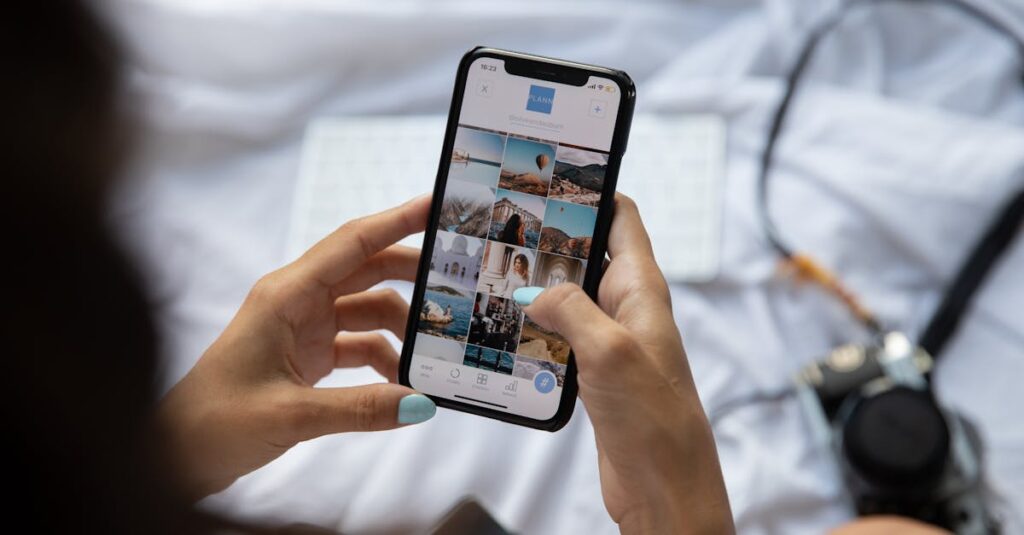Introduction
Imagine stepping off a plane in a foreign city, and before you even have to look up directions, your phone buzzes with a message: “Here’s the best route to your hotel, and there’s a 30% chance it will rain soon. You might want to grab an umbrella.” This is no longer a sci-fi dream, it’s the future of travel, and it’s just around the corner. By 2025, travel apps are expected to go far beyond simple bookings and maps, predicting your needs with pinpoint accuracy. How will this new generation of apps work, and what does it mean for the future of travel?
The Rise of Predictive Travel Technology
Predictive technology has already begun to infiltrate our lives. From Amazon recommending products we didn’t know we needed to Google predicting traffic delays before we even start our commute, we’re getting used to being one step ahead. Travel is next in line. With the rise of AI, machine learning, and real-time data collection, apps are learning how to predict what you’ll want before you even realize it yourself.
Take a simple example: You’re heading to Paris. Instead of just receiving a notification about your flight status or weather alerts, your app can now gauge your travel preferences and habits. It could predict when you’ll likely feel hungry, suggest a restaurant based on your past dining choices, or remind you to charge your phone just as you enter a busy metro station.
How Predictive Travel Apps Will Work
Data-Driven Personalization
Predictive apps gather data to build a profile of your travel behavior. This includes your favorite airlines, preferred hotels, dining preferences, and even the kinds of activities you enjoy. But what sets predictive apps apart is their ability to learn over time, adapting to your shifting tastes or needs.
For instance, if you’ve consistently chosen vegan restaurants during past trips, your app will start to suggest similar dining spots even before you ask for recommendations. Similarly, if you’re the type to skip breakfast but grab a coffee every morning, your app might notify you about the best nearby coffee shop the moment you wake up.
Real-Time Adaptation
Predictive apps won’t just operate on historical data, they’ll react to real-time events, constantly adjusting to your changing circumstances. Got delayed at the airport? No problem. Your app will immediately shift your plans, suggesting alternative activities or a different route to your hotel. Forgot to book a museum ticket? The app will remind you just in time to avoid missing out.
This adaptation isn’t limited to logistical changes either. Let’s say you’re traveling to Tokyo and the weather forecast suddenly predicts a thunderstorm. Your app can recommend an indoor activity, perhaps a quirky museum or a tea ceremony experience, to replace your original outdoor plans.
AI-Powered Assistance
AI assistants in 2025 will be far more intelligent than Siri or Alexa. These apps won’t just respond to commands; they’ll anticipate your needs before you even ask. For example, if your flight is delayed and you’ve been sitting at the airport for a while, your app might suggest a nearby lounge where you can relax. Or, if your app detects that you’re feeling tired (based on factors like your flight time and activity level), it may suggest a nearby spa or quiet place to rest.
Let’s say you’re traveling to Barcelona for the first time. Your app could know that you’re a fan of history and architecture, and automatically suggest a route that passes by some of Gaudi’s most famous works, while also factoring in your need for a caffeine break in between. This personalized, dynamic approach can transform the stress of navigating a new city into an enjoyable and seamless experience.
Real-World Examples of Predictive Travel Apps
1. Hopper: Flight Predictions You Can Trust
Hopper is a great example of predictive technology already in action. The app predicts future flight prices with high accuracy, allowing users to book at the ideal time. By 2025, Hopper could go even further, offering personalized alerts based on your individual travel patterns and even suggesting when to book a hotel or rent a car in conjunction with your flight.
Imagine you’re planning a trip to Bali. Hopper would track prices not just for flights, but for everything, from local car rentals to restaurant reservations. It could even predict when demand will peak for a specific event, alerting you to book tickets early.
2. Google Trips: Personal Itinerary Assistant
Google Trips has already revolutionized the way we plan vacations by automatically gathering travel details from Gmail and Google Calendar. In 2025, we can expect even smarter integration. The app might create an itinerary based on your interests, predict your daily energy levels (based on sleep and past activity), and suggest activities accordingly. If you’ve had a packed morning, Google Trips may recommend a light afternoon activity, perhaps a scenic stroll or a coffee shop where you can unwind.
3. TripIt: The AI Travel Concierge
TripIt, another app that’s been helping travelers for years, will likely continue evolving into a fully AI-powered concierge. By 2025, it could go beyond organizing your flights, accommodations, and car rentals. Imagine TripIt helping you decide which airport terminal has the least congestion, or notifying you of nearby events that match your interests, based on your itinerary.
What Does This Mean for the Future of Travel?
As travel apps grow smarter, they’ll not only save time but also make the experience more enjoyable. With the power of predictive technology, you won’t have to waste time searching for things, your app will do that for you. Instead of scrolling through dozens of restaurants, your app will suggest the one you’ll enjoy the most, based on your tastes, budget, and mood.
But beyond convenience, predictive travel apps offer something even more exciting: the possibility of turning travel into a truly personalized experience. Every step, from booking to exploration, can be tailor-made for you, making your travels feel less like a checklist and more like an adventure curated just for you.
Conclusion: The Future of Travel Is Predictive
By 2025, travel apps won’t just be tools, they’ll be your personal travel assistants, anticipating your every need before you even realize it. Whether you’re planning a trip or already on your way, these apps will take the guesswork out of travel, allowing you to focus on the experience instead of logistics. So, as you dream about your next adventure, keep in mind that by 2025, your travel app might already know exactly where you want to go, when you need a coffee, and which museum you’ll want to visit next.
The future is here, and it’s a lot smarter than we ever imagined.

